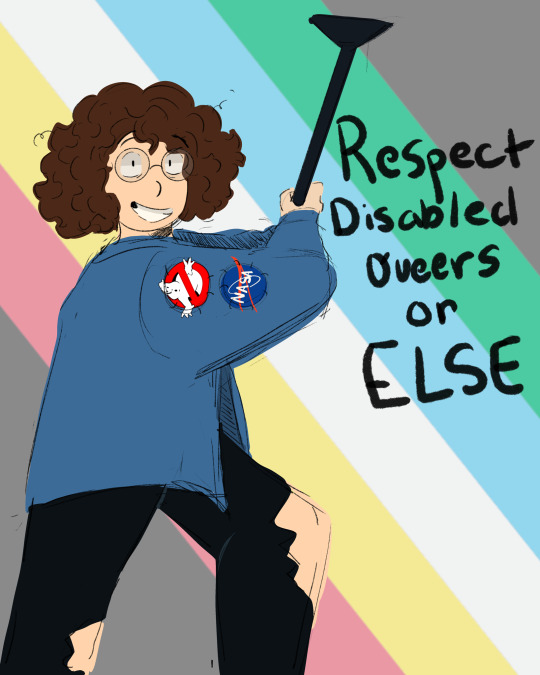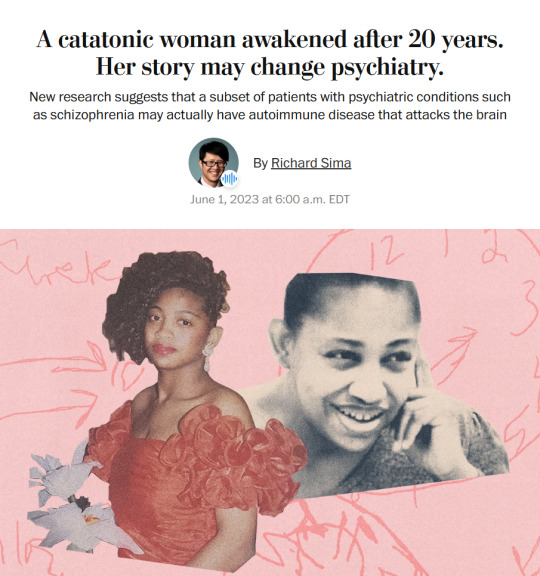#mental diseases
Explore tagged Tumblr posts
Text
Terzo: Don’t you just love that mental disorders are basically buy one get seven free?
Primo: I didn’t even want the first one! Dad made me get it!
Secondo: Mine was a family heirloom from my mother passed down for generations.
#they're like potato chips#you can't have just one#thanks mom#thanks dad#generational trauma#nature and nurture#it strolls through the family#gets to know everyone#mental health#mental diseases#mental disorders#taintposting#shitghosting#ghost#ghost band#incorrect quotes#ghost bc#the band ghost#ghost fandom#ghost posting#papa 1#papa emeritus i#papa i#primo#primo emeritus#papa ii#papa 2#papa emeritus ii#secondo#secondo emeritus
98 notes
·
View notes
Text
English is not my native language so I learn slang only by the context and every time i see the word "acoustic" it always looks like "autistic" in a very offensive way so
What the fuck is going on with this ableism trend of yours
#im sorry but it is incredibly offensive#folks were like “nah the word autistic is not an insult enough”#they always say it about “stupid” and/or “weird” people#it's so not ok but everyone says so and i can't argue with every fucking person#mental disability#mental diseases#neurotypical#neurodivergent#neurodiversity#psychotherapy#slang#autism#actually autistic#autistic things#i have a diagnosis so im valid#acoustic#ableism
22 notes
·
View notes
Text
I never realized I had a lot of built-up anxiety until I started taking anti-anxiety pills.
First, when I started the treatment and the pills began to take effect, I felt more awake and more positive.
Although I think it was more about being relaxed, I didn't think about the consequences of anything, I wasn't thinking about what my classmates would think of me, I didn't think about what would happen in my future as an adult, I didn't think about anything, I can only continue with school things and drawing
Sometimes I forget to take the pill, and I feel restless and nervous, I may even start to cry.
Post: I don't want this post to be misinterpreted as a way to promote the consumption of psychiatric pills as if it were a headache pill, no, I'm just telling about my experience with my treatment and how I feel and how I'm going, I'm lucky that The pills they gave me are quite light (coupling with other medications), my experience is good (for now), but that does not mean the same for other people, there are people who take strong medications for different reasons and feel quite bad, It is important to say that psychiatric pills do not cure you, they are not like those for medical use, they will not cure your depression, echisophrenia, or anxiety, etc., they only help you cope with the situation and not aggravate it, I take the pills not to cure my anxiety, but to calm it
3 notes
·
View notes
Text

4 notes
·
View notes
Text

That's what I am listening to while doing the diversity and inclusion training for the job at the distopic american corporation
0 notes
Text
Civilization is a Mental Diseases.
A collective consciousness cancer cursing the human race.
0 notes
Text

This is a threat
#disability pride#disability#autoimmine disease#chronic pain#chronic illness#chronically ill#mobility aid#queer#sapphic#achillean#bisexual#asexual#lesbian#gay#homosexual#pride month#lgbt#aromantic#nonbinary#transgender#transfem#transmasc#mental disability#pansexual#actually neurodivergent#neurodivergent#neurological disability#neurodiversity#actually neurodiverse#my art
21K notes
·
View notes
Text
Sending love to everyone who has health issues or chronic pain in parts of your body that aren’t usually socially acceptable to talk about. It’s frustrating to feel like you can never explain your pain to someone because it’s TMI and to feel like you have to hide it. Your pain is nothing to be ashamed of. I see you, and I’m sending you support and strength.
#suggestions#suggestion blog#positivity#disability#chronic pain#chronic pain problems#physical disability#IC#interstitial cystitis#chronic illness#crohn's disease#IBS#vaginusmus#SGID#ulcerative colitis#Diverticulitis#self love#mental health#self care
7K notes
·
View notes
Text

Understanding Personality Disorder Disease: A Human Perspective
Considering the intricate details of personality disorder disease requires an empathetic, humanistic approach. This illness, defined as persisting routines in thoughts, feelings, and actions, affect people in many different of ways. We handle the intricate nature of this condition with empathy and understanding, encouraging acceptance as well as assistance for people affected while also raising awareness and demonizing it in our communities.
0 notes
Text
I wish all chronically ill and disabled people a very “doctors listening to you” November
#disabled#chronic illness#epilepsy#seizures#me/cfs#myalgic encephalomyelitis#pots#postural orthostatic tachycardia syndrome#pots syndrome#dysautonomia#autoimmune disease#hashimotos#disability#mental health#mental illness
4K notes
·
View notes
Text
youtube
TOP 5: cinco episódios da série "Além da imaginação" da década de 60, que ainda se mantém atuais!
#the monsters are due on maple street#the twilight zone#number 12 looks just like you#fake news#the midnight sun#60's movies#stop at willoughby#Rod Serling#mental diseases#the shelter#Youtube
1 note
·
View note
Text
#mental illness#Mental Diseases#mental health#NMC Pondy#Mental awareness#mental illness treatment#health issues#healthcare blog#healthcare
0 notes
Text
There is Definitely something wrong with my brain. I'm not sure what's wrong, but it ain't good and it's reaching some kind of breaking point. Hopefully the psychiatrist can help me sort it out.
0 notes
Text

#spoonie#chronic illness#chronically ill#chronic disease#invisible disability#disabled#disabled people#disability#mentally disabled#actually disabled#disabled artist#disabled girl#disabilties#disabled pride#disabled representation#disabled community#disabled life#disabled rights#disabledcreator#physical disability#physically disabled#disabledandcute#psychology
1K notes
·
View notes
Text
Why is it no matter what I do it isn't the correct thing. Am I just doomed? Even at the same time I'm actively trying to change my actions, my behavior. I just feel lost, in ever twisting maze. But the maze is changing and adapting constantly, so there is no to ever find my way out.
#having a day#mood#will it ever get better#mental health#want it to stop#mental diseases#mental illness
4 notes
·
View notes
Text

Story from the Washington Post here, non-paywall version here.
Washington Post stop blocking linksharing and shit challenge.
"The young woman was catatonic, stuck at the nurses’ station — unmoving, unblinking and unknowing of where or who she was.
Her name was April Burrell.
Before she became a patient, April had been an outgoing, straight-A student majoring in accounting at the University of Maryland Eastern Shore. But after a traumatic event when she was 21, April suddenly developed psychosis and became lost in a constant state of visual and auditory hallucinations. The former high school valedictorian could no longer communicate, bathe or take care of herself.
April was diagnosed with a severe form of schizophrenia, an often devastating mental illness that affects approximately 1 percent of the global population and can drastically impair how patients behave and perceive reality.
“She was the first person I ever saw as a patient,” said Sander Markx, director of precision psychiatry at Columbia University, who was still a medical student in 2000 when he first encountered April. “She is, to this day, the sickest patient I’ve ever seen.” ...
It would be nearly two decades before their paths crossed again. But in 2018, another chance encounter led to several medical discoveries...
Markx and his colleagues discovered that although April’s illness was clinically indistinguishable from schizophrenia, she also had lupus, an underlying and treatable autoimmune condition that was attacking her brain.
After months of targeted treatments [for lupus] — and more than two decades trapped in her mind — April woke up.
The awakening of April — and the successful treatment of other people with similar conditions — now stand to transform care for some of psychiatry’s sickest patients, many of whom are languishing in mental institutions.
Researchers working with the New York state mental health-care system have identified about 200 patients with autoimmune diseases, some institutionalized for years, who may be helped by the discovery.
And scientists around the world, including Germany and Britain, are conducting similar research, finding that underlying autoimmune and inflammatory processes may be more common in patients with a variety of psychiatric syndromes than previously believed.
Although the current research probably will help only a small subset of patients, the impact of the work is already beginning to reshape the practice of psychiatry and the way many cases of mental illness are diagnosed and treated.
“These are the forgotten souls,” said Markx. “We’re not just improving the lives of these people, but we’re bringing them back from a place that I didn’t think they could come back from.” ...
Waking up after two decades
The medical team set to work counteracting April’s rampaging immune system and started April on an intensive immunotherapy treatment for neuropsychiatric lupus...
The regimen is grueling, requiring a month-long break between each of the six rounds to allow the immune system to recover. But April started showing signs of improvement almost immediately...
A joyful reunion
“I’ve always wanted my sister to get back to who she was,” Guy Burrell said.
In 2020, April was deemed mentally competent to discharge herself from the psychiatric hospital where she had lived for nearly two decades, and she moved to a rehabilitation center...
Because of visiting restrictions related to covid, the family’s face-to-face reunion with April was delayed until last year. April’s brother, sister-in-law and their kids were finally able to visit her at a rehabilitation center, and the occasion was tearful and joyous.
“When she came in there, you would’ve thought she was a brand-new person,” Guy Burrell said. “She knew all of us, remembered different stuff from back when she was a child.” ...
The family felt as if they’d witnessed a miracle.
“She was hugging me, she was holding my hand,” Guy Burrell said. “You might as well have thrown a parade because we were so happy, because we hadn’t seen her like that in, like, forever.”
“It was like she came home,” Markx said. “We never thought that was possible.”
...After April’s unexpected recovery, the medical team put out an alert to the hospital system to identify any patients with antibody markers for autoimmune disease. A few months later, Anca Askanase, a rheumatologist and director of the Columbia Lupus Center,who had been on April’s treatment team, approached Markx. “I think we found our girl,” she said.
Bringing back Devine
When Devine Cruz was 9, she began to hear voices. At first, the voices fought with one another. But as she grew older, the voices would talk about her, [and over the years, things got worse].
For more than a decade, the young woman moved in and out of hospitals for treatment. Her symptoms included visual and auditory hallucinations, as well as delusions that prevented her from living a normal life.
Devine was eventually diagnosed with schizoaffective disorder, which can result in symptoms of both schizophrenia and bipolar disorder. She also was diagnosed with intellectual disability.
She was on a laundry list of drugs — two antipsychotic medications, lithium, clonazepam, Ativan and benztropine — that came with a litany of side effects but didn’t resolve all her symptoms...
She also had lupus, which she had been diagnosed with when she was about 14, although doctors had never made a connection between the disease and her mental health...
Last August, the medical team prescribed monthly immunosuppressive infusions of corticosteroids and chemotherapy drugs, a regime similar to what April had been given a few years prior. By October, there were already dramatic signs of improvement.
“She was like ‘Yeah, I gotta go,’” Markx said. “‘Like, I’ve been missing out.’”
After several treatments, Devine began developing awareness that the voices in her head were different from real voices, a sign that she was reconnecting with reality. She finished her sixth and final round of infusions in January.
In March, she was well enough to meet with a reporter. “I feel like I’m already better,” Devine said during a conversation in Markx’s office at the New York State Psychiatric Institute, where she was treated. “I feel myself being a person that I was supposed to be my whole entire life.” ...
Her recovery is remarkable for several reasons, her doctors said. The voices and visions have stopped. And she no longer meets the diagnostic criteria for either schizoaffective disorder or intellectual disability, Markx said...
Today, Devine lives with her mother and is leading a more active and engaged life. She helps her mother cook, goes to the grocery store and navigates public transportation to keep her appointments. She is even babysitting her siblings’ young children — listening to music, taking them to the park or watching “Frozen 2” — responsibilities her family never would have entrusted her with before her recovery.
Expanding the search for more patients
While it is likely that only a subset of people diagnosed with schizophrenia and psychotic disorders have an underlying autoimmune condition, Markx and other doctors believe there are probably many more patients whose psychiatric conditions are caused or exacerbated by autoimmune issues...
The cases of April and Devine also helped inspire the development of the SNF Center for Precision Psychiatry and Mental Health at Columbia, which was named for the Stavros Niarchos Foundation, which awarded it a $75 million grant in April. The goal of the center is to develop new treatments based on specific genetic and autoimmune causes of psychiatric illness, said Joseph Gogos, co-director of the SNF Center.
Markx said he has begun care and treatment on about 40 patients since the SNF Center opened. The SNF Center is working with the New York State Office of Mental Health, which oversees one of the largest public mental health systems in America, to conduct whole genome sequencing and autoimmunity screening on inpatients at long-term facilities.
For “the most disabled, the sickest of the sick, even if we can help just a small fraction of them, by doing these detailed analyses, that’s worth something,” said Thomas Smith, chief medical officer for the New York State Office of Mental Health. “You’re helping save someone’s life, get them out of the hospital, have them live in the community, go home.”
Discussions are underway to extend the search to the 20,000 outpatients in the New York state system as well. Serious psychiatric disorders, like schizophrenia, are more likely to be undertreated in underprivileged groups. And autoimmune disorders like lupus disproportionately affect women and people of color with more severity.
Changing psychiatric care
How many people ultimately will be helped by the research remains a subject of debate in the scientific community. But the research has spurred excitement about the potential to better understand what is going on in the brain during serious mental illness...
Emerging research has implicated inflammation and immunological dysfunction as potential players in a variety of neuropsychiatric conditions, including schizophrenia, depression and autism.
“It opens new treatment possibilities to patients that used to be treated very differently,” said Ludger Tebartz van Elst, a professor of psychiatry and psychotherapy at University Medical Clinic Freiburg in Germany.
In one study, published last year in Molecular Psychiatry, Tebartz van Elst and his colleagues identified 91 psychiatric patients with suspected autoimmune diseases, and reported that immunotherapies benefited the majority of them.
Belinda Lennox, head of the psychiatry department at the University of Oxford, is enrolling patients in clinical trials to test the effectiveness of immunotherapy for autoimmune psychosis patients.
As a result of the research, screenings for immunological markers in psychotic patients are already routine in Germany, where psychiatrists regularly collect samples from cerebrospinal fluid.
Markx is also doing similar screening with his patients. He believes highly sensitive and inexpensive blood tests to detect different antibodies should become part of the standard screening protocol for psychosis.
Also on the horizon: more targeted immunotherapy rather than current “sledgehammer approaches” that suppress the immune system on a broad level, said George Yancopoulos, the co-founder and president of the pharmaceutical company Regeneron.
“I think we’re at the dawn of a new era. This is just the beginning,” said Yancopoulos."
-via The Washington Post, June 1, 2023
#mental illness#schizophrenia#schizoaffective#psychotic disorders#psychology#neurology#autoimmune#autoimmine disease#neuroscience#medical news#medical research#catatonia#immunotherapy#immune system#clinical trials#good news#hope
6K notes
·
View notes